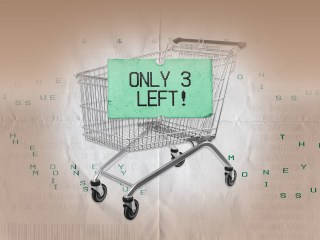Going Nonverbal Doesn’t Mean What You Think It Means
Having a drained social battery doesn’t count.
If you’ve been on TikTok recently, you’ve probably seen creators mentioning “going nonverbal” and joking about their social batteries running out after vibing at a party for a second too long (or hitting the weed pen too hard). While most people have experience with this feeling of suddenly getting introspective and verbally withdrawn, the “going nonverbal” punchline trivializes a symptom experienced by people with autism—a point some content creators have already made.
This isn’t the first time the meme cycle has taken a mental health term out of context (hi, trauma bonding and codependency), and we’re not here to judge you for the likes and shares. Still, setting the record straight can help us understand ourselves and others even more. It also enables us to avoid co-opting or watering down language that serves specific or already stigmatized populations. With that in mind, read on for what going nonverbal actually means, what it feels like, and more accurate ways to express that fading-into-the-background-feeling.
First, what does nonverbal even mean?
This has two meanings, says licensed psychologist David Tzall, PsyD. The first official definition is an adjective that describes communicating without words by choice. Think: shrugging your shoulders or discreetly grabbing your friend to make sure they clocked your mutual’s wild statement too.
The second interpretation, while not an official clinical definition, describes when someone is only able to communicate using a few words, is totally mute, or is limited to expressing themselves through pointing or grunting, Dr. Tzall explains. This form of being nonverbal is not a choice and can impact a person’s functioning and quality of life, Dr. Tzall adds.
The inability to speak can impact people with autism who haven’t developed verbal skills, who struggle with person-to-person communication, or who have speech disorders, like apraxia of speech. For nonverbal autistic people, speech therapy may help, but developing or regaining language isn’t a guarantee, says psychiatrist Judith Joseph, MD.
Becoming involuntarily nonverbal is also something that can happen to trauma survivors, Dr. Joseph explains. If their flight, fight, or freeze response is activated, people with a history of trauma can experience a form of dissociation that renders them unable to speak—even if they wanted to, she adds. “Sometimes the person feels detached from their body or their surroundings, and they have no control over this.” Dr. Joseph says.
Being somewhat or completely nonverbal is also a symptom of certain types of aphasia, a communication disorder that’s brought on by brain injury, stroke, or a progressive neurological disease, like Alzheimer’s.
All of this is to say that these memes about “going nonverbal” are totally missing the fact that many people have no choice over the matter, Dr. Tzall says. It's the difference between someone who prefers to be more reserved in certain situations and someone who cannot speak—even if they really want to—because they're neurodivergent or dealing with a physical or mental health condition, he explains. “Not having the ability to communicate and being truly nonverbal is a form of a disability. When people inappropriately label themselves as going ‘nonverbal’ by choice, it discredits the communities that have very real challenges and disabilities,” Dr. Joseph adds.
Why it sometimes feels so hard to talk even if you’re not nonverbal
One of the reasons this concept became a thing in the meme world is because a lot of us have verbally Irish exited a social interaction when we’re just too exhausted to keep up a conversation. Ambiverts, you definitely get this. “Shutting down is a natural instinct among humans and animals to preserve safety and security,” Dr. Tzall adds.
This experience could be more common in people with anxiety or depression, who might find themselves more easily depleted and have less of a desire to engage with others, Dr. Tzall explains.
So, even if you can typically talk without issue in various other situations, anxiety can really eff with your conversational skills and make you feel like you have no control. It’s much harder to be charming when you’re already using so much brain power to spiral through scary what-if scenarios or worry about what people think of you (like with social anxiety).
People with depression can face similar struggles when they’re dealing with extreme fatigue. Maybe this is obvious, but it can be extra challenging or overwhelming to talk when a depressive episode leaves you barely able to shower or eat a legit meal, Dr. Joseph says. Having a hard time focusing or low self-worth, which is common in people with depression, can also make you withdraw from chitchat, Dr. Tzall adds.
Here’s what you should say instead.
There’s nothing wrong with admitting you need to tap out or sharing your social depletion story on the internet, but maybe a better way to describe it would be something like “I’m shutting down,” “feeling flooded,” or “getting overwhelmed,” suggest Dr. Joseph and Dr. Tzall. “Powering down” and “low-battery mode” might also be solid options, if you can relate.
Whatever you call it, consider this permission to delete yourself from that situation and head out to recharge. Since it’s pretty clear most of us have been there, no one’s judging.
Wondermind does not provide medical advice, diagnosis, or treatment. Any information published on this website or by this brand is not intended as a replacement for medical advice. Always consult a qualified health or mental health professional with any questions or concerns about your mental health.




